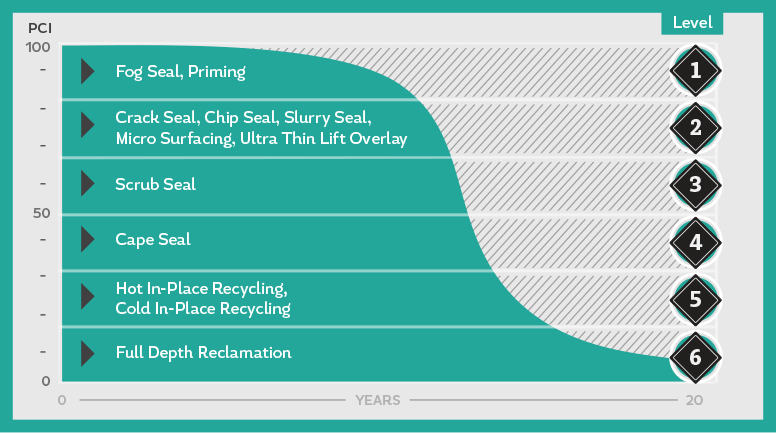70-80
Learn about the benefits of Conventional Chip Seal Treatments
Oftentimes, a simple software update can radically improve the performance of an electronic device. A similar theory is true of a conventional chip seal’s ability to revitalize roads.
A conventional chip seal is an asphalt binder that is applied on an existing surface, followed by a layer of aggregate chips that are rolled and embedded into the aggregate binder. Conventional chip seals can be used as a method of preventative maintenance or to upgrade a gravel road to a paved road.
At an average cost of $2.25 per square yard, conventional chip seals can extend the life of a roadway by roughly 5-7 years, making them a fast, cost-effective way to perform roadway maintenance and upgrades.
Conventional chip seals can be used to treat or prevent areas of oxidation, top down fatigue cracks, raveling and loss of friction, making it a swift and inexpensive way to complete the project.
While conventional chip seals can be used in several different maintenance scenarios, they should never be used on unsealed cracks greater than ¼” or ruts deeper than ⅜”.
Douglas Gransberg PhD completed research on the many different types of chip seals used. He found that conventional chip seals were ideal for roadways with low average daily traffic volume, less than 500.
Best Practices
- Follow a prepared design.
- Seal cracks larger than ¼”.
- Use a single size, clean stone for aggregate.
- Make adjustments to target rates on site depending on field conditions.
- Ensure equipment is properly calibrated.
- Do not over apply aggregate.
- All traffic including construction equipment should be controlled to less than 35mph until final sweeping.
Download Success Stories
- Success Story: Hawkinsville, GA
Conventional Chip Seal


